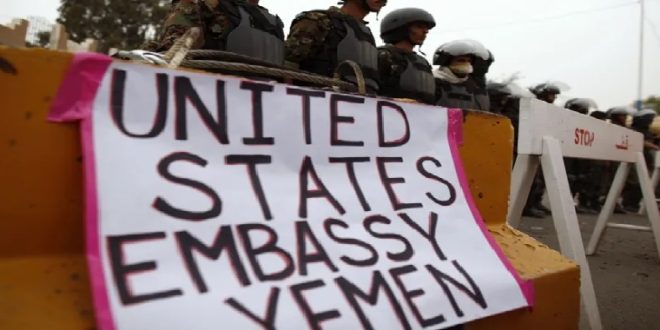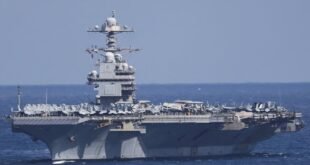US foreign policy fails again, against the Houthis
23-07-2024
WASHINGTON: On July 20, the Israeli air force attacked the Yemeni port of Hodeidah, controlled by the Yemeni militia, Ansar Allah, also known as the Houthis. Local media reported a large explosion at a fuel storage facility and a power plant and the death of at least six people. The air raid came in retaliation for the long-range drone launched from Yemeni territory that struck Tel Aviv on July 19, killing one person.
 The Houthi attack achieved a technological and symbolic victory, as the group managed to penetrate Israeli territory, dodging the Israeli air defence system and inflicting damage for the first time since the start of the hostilities in October 2023. Israel’s decision to retaliate against civilian infrastructure instead of military targets is a sign that the tensions in the Red Sea region may escalate into an all-out conflict.
The Houthi attack achieved a technological and symbolic victory, as the group managed to penetrate Israeli territory, dodging the Israeli air defence system and inflicting damage for the first time since the start of the hostilities in October 2023. Israel’s decision to retaliate against civilian infrastructure instead of military targets is a sign that the tensions in the Red Sea region may escalate into an all-out conflict.
These developments demonstrate not only the failure of the United States’ bombing campaign to deter and degrade the Houthis’ capability of attacking Israel and Red Sea shipping, but also the US’s inability to prevent a regional war, its declared top diplomatic priority since October 2023.
The Houthis’ attack on Israel came at the nine-month mark of the start of their intervention on the side of Hamas and other Palestinian resistance groups fighting the Israeli occupation forces. On October 19, they launched a salvo of missiles and drones towards Israeli territory, demanding an end to the Israeli invasion of Gaza.
The projectiles failed to reach their target as they were intercepted by the Israeli Arrow missile defence system. Shortly afterwards, the Houthis expanded their attacks to include ships that they consider linked to Israel or any of its foreign allies, thus disrupting one of the busiest shipping lanes in the world.
In December, the US and some of its Western allies announced they were launching an operation in the Red Sea to try to stop attacks on ships from Yemeni territory and secure shipping routes. But this campaign has largely failed its mission.
 Houthi attacks have come at a constant pace and have not shown any signs of diminishing. On January 10, the group launched 18 drones, two antiship cruise missiles and an antiship ballistic missile all intercepted by US and British forces. Two days later, allied forces responded with air strikes against Houthi military targets in Yemen.
Houthi attacks have come at a constant pace and have not shown any signs of diminishing. On January 10, the group launched 18 drones, two antiship cruise missiles and an antiship ballistic missile all intercepted by US and British forces. Two days later, allied forces responded with air strikes against Houthi military targets in Yemen.
However, attacks on shipping lanes continued afterwards, leading to the damage and loss of a number of vessels. Missiles launched from Yemen continued to target Israel. In mid-March, a cruise missile made it through Israeli air defences and exploded in an open area near the Israeli port of Eilat. In April, the group joined Iran in its missile and drone attack on Israel in response to the assassination of Iranian officials in Syria.
The fact that the Houthi drone penetrated so deep into Israeli territory on July 19 is seen in Sanaa as a symbolic victory even against the backdrop of Israel’s bloody retaliation. Such military successes are raising the group’s profile not only in Yemen, but also regionally. The attacks on Israel have broadened the Houthi appeal beyond their Zaidi Shia base and beyond Yemen, which is expanding their domestic and international legitimacy while in Sanaa there seems to be a cause for celebration, in Washington there are major failures to reflect on. The seven-month-long US-led campaign against the Houthis has not given many results. However, it has cost a whole lot.
Since January 2024 the US has launched salvos of missiles, costing $1m to $4.3m each, against Houthi targets. The costly attacks led Senator Jack Reed, chairman of the US Senate Armed Services Committee, to admonish US President Joe Biden in January. (Int’l Monitoring Desk)
 Pressmediaofindia
Pressmediaofindia




